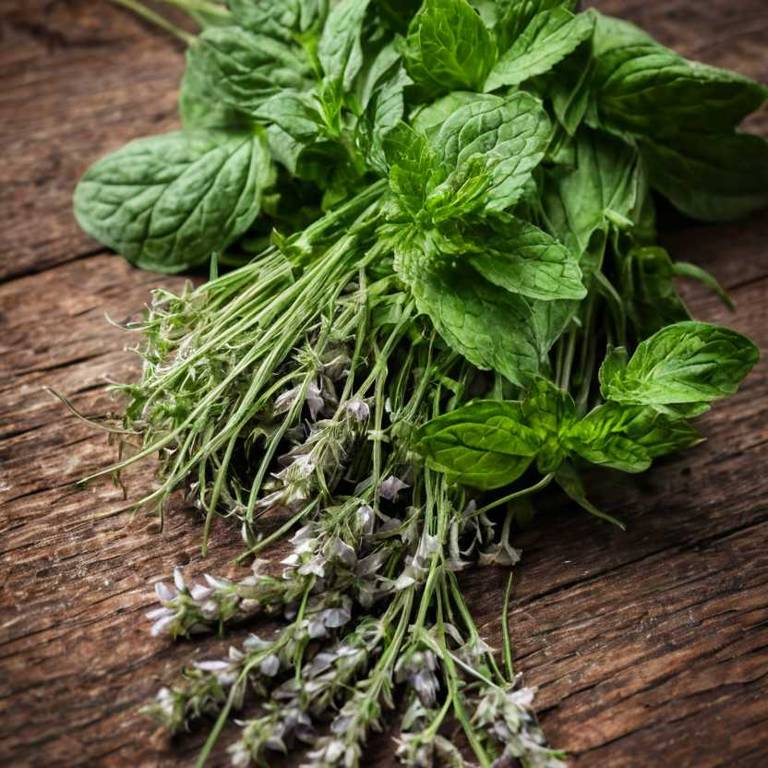By Leen Randell
Updated: Jul 20, 2024
10 Medicinal Constituents Of Plantago Major (Plantain)

Plantago major has active constituents such as flavonoids, iridoid glycosides, and triterpenoid saponins.
These compounds exhibit anti-inflammatory, antimicrobial, and antioxidant properties, which may contribute to the plant's traditional use in wound healing and skin conditions.
By reducing inflammation and promoting tissue repair, these constituents can help improve symptoms of eczema and other skin irritations, enhancing overall quality of life for individuals with these conditions.
This article explains in details the 10 best active constituents of Plantago major.
1. Allantoin
Plantago major allantoin is a naturally occurring compound found in the leaves of the plant.
It has been traditionally used in herbal medicine for its anti-inflammatory and wound-healing properties. Allantoin helps to promote cell turnover, reducing the appearance of fine lines and wrinkles, and soothes irritated skin by increasing moisture levels.
It's also known to accelerate skin regeneration, making it a popular ingredient in skincare products for treating acne, wounds, and burns.
2. Anthraquinones
Plantago major anthraquinones is a group of bioactive compounds found in its leaves and seeds.
These anthraquinones have been studied for their potential therapeutic properties, including anti-inflammatory, antimicrobial, and antioxidant activities.
They have also been shown to exhibit cytotoxic effects against certain types of cancer cells, making them a promising area of research in the field of natural medicine.
3. Amino acids
Plantago major amino acids is a rich source of several essential and non-essential amino acids.
The herb contains all nine essential amino acids that cannot be produced by the human body and are necessary for growth and maintenance.
Plantain amino acids have been reported to possess anti-inflammatory properties, improve wound healing, and exhibit antimicrobial activity, making it a potential therapeutic agent in traditional medicine.
4. Gallic acid
Plantago major gallic acid is a phenolic compound found in its leaves.
It has been traditionally used in folk medicine to treat various ailments, including wounds, skin ulcers, and inflammation.
Research has shown that Plantago major gallic acid exhibits potent antioxidant and anti-inflammatory properties, making it a potential natural remedy for treating chronic diseases such as arthritis, diabetes, and cancer.
5. Hydroxybenzoic acid
Plantago major hydroxybenzoic acid is a type of phenolic compound found in its leaves.
This compound has been traditionally used in herbal medicine to treat various skin conditions such as wounds, eczema, and acne. Hydroxybenzoic acid has antibacterial and anti-inflammatory properties, which may contribute to its therapeutic effects.
It also exhibits antioxidant activity, protecting the skin from damage caused by free radicals.
6. Phenolic compounds
Plantago major phenolic compounds is a group of bioactive molecules that have been identified in its leaves and roots.
These compounds are responsible for the plant's antioxidant, anti-inflammatory, and antimicrobial properties.
The phenolics present in Plantago major include flavonoids, phenolic acids, and lignans, which have been shown to exhibit potent scavenging activity against free radicals and may contribute to the plant's therapeutic effects.
7. Flavonoids
Plantago major flavonoids is a type of bioactive compound found in its leaves and stems.
These flavonoids have been shown to possess various biological activities, including antioxidant, anti-inflammatory, and antimicrobial properties. They may also exhibit wound healing effects by accelerating tissue repair and reducing scarring.
Additionally, the flavonoids present in plantain have been reported to have antidiabetic and anticancer potential, making it a valuable natural resource for medicinal applications.
8. Saponins
Plantago major saponins is a group of bioactive compounds extracted from the leaves and flowers of this herb.
These saponins have been extensively studied for their potential health benefits, including anti-inflammatory, antioxidant, and antimicrobial properties.
They have been shown to exhibit potent activities against various diseases, such as cancer, cardiovascular disorders, and infections, making Plantago major a promising source of natural medicine.
9. Glycosides
Plantago major glycosides is a type of saponin compound found in the leaves of the plant.
These glycosides have been traditionally used in herbal medicine to treat various health issues such as wounds, skin irritations, and digestive problems. They exhibit anti-inflammatory and antimicrobial properties, making them effective against bacteria, viruses, and fungi.
The glycosides are believed to contribute to the plant's wound-healing and soothing effects when applied topically or consumed orally.
10. Quercetin
Plantago major quercetin is a flavonoid compound found in its leaves.
It has been traditionally used for centuries to treat various health issues, including inflammation and allergies. Quercetin has potent anti-inflammatory and antioxidant properties, which help to reduce oxidative stress and alleviate symptoms of conditions such as arthritis and asthma.
Its bioavailability is also improved when consumed with vitamin C-rich foods, making it an effective natural remedy for overall wellness.